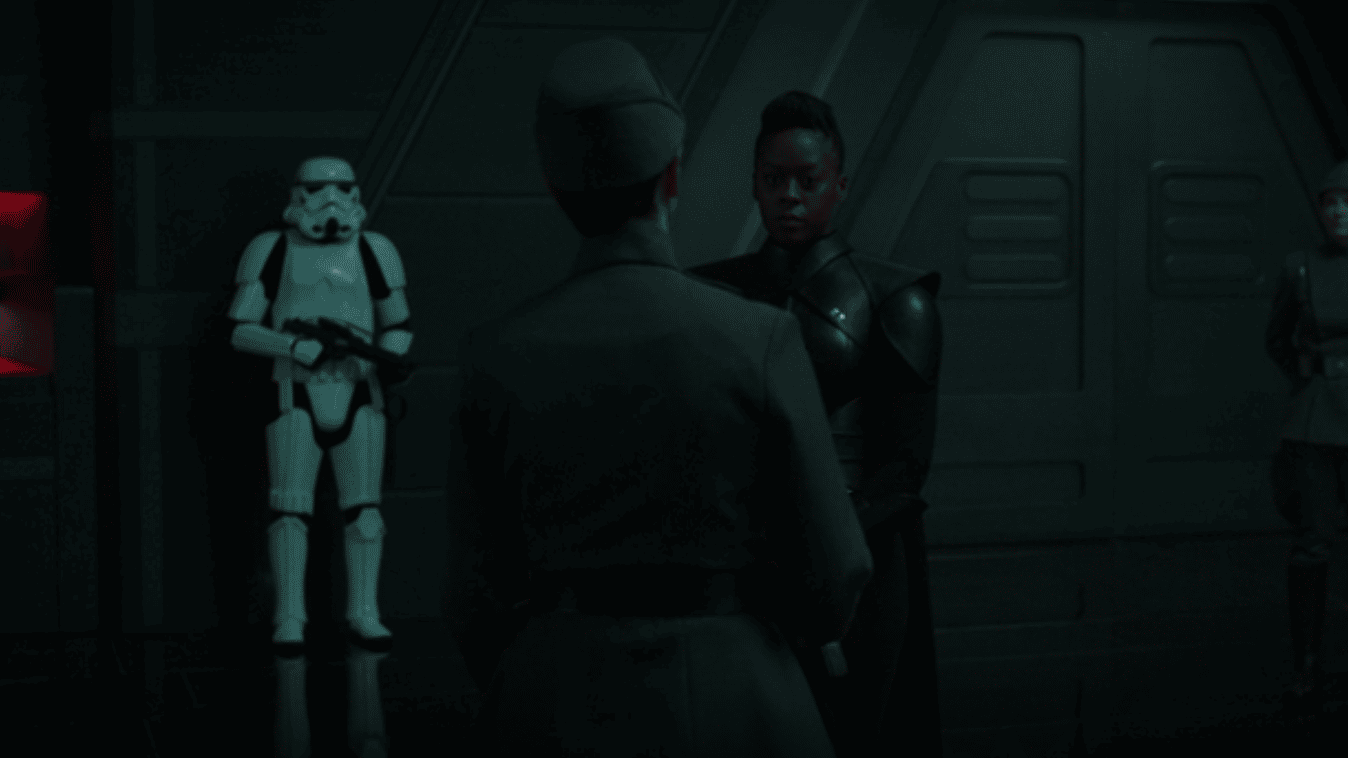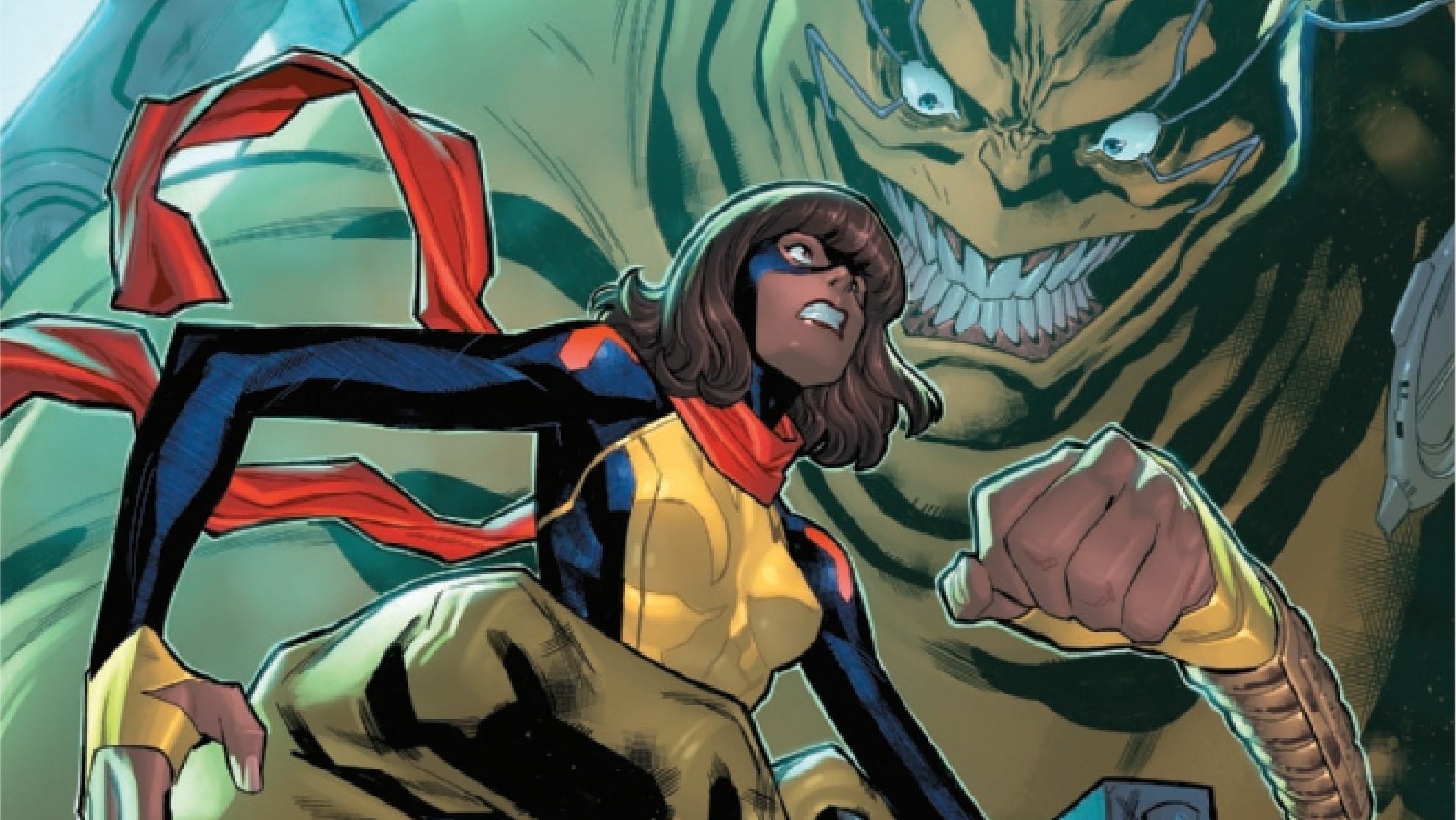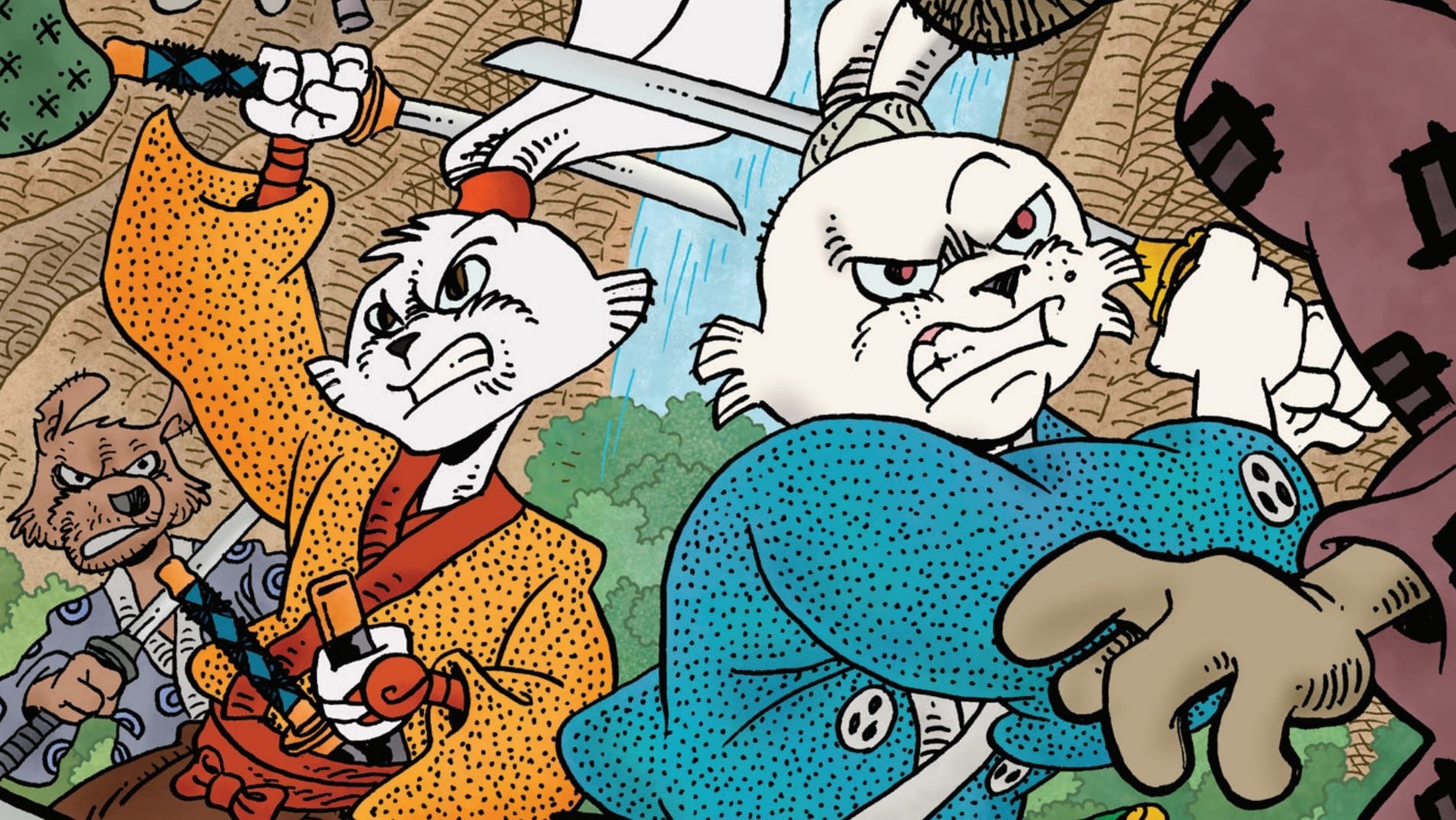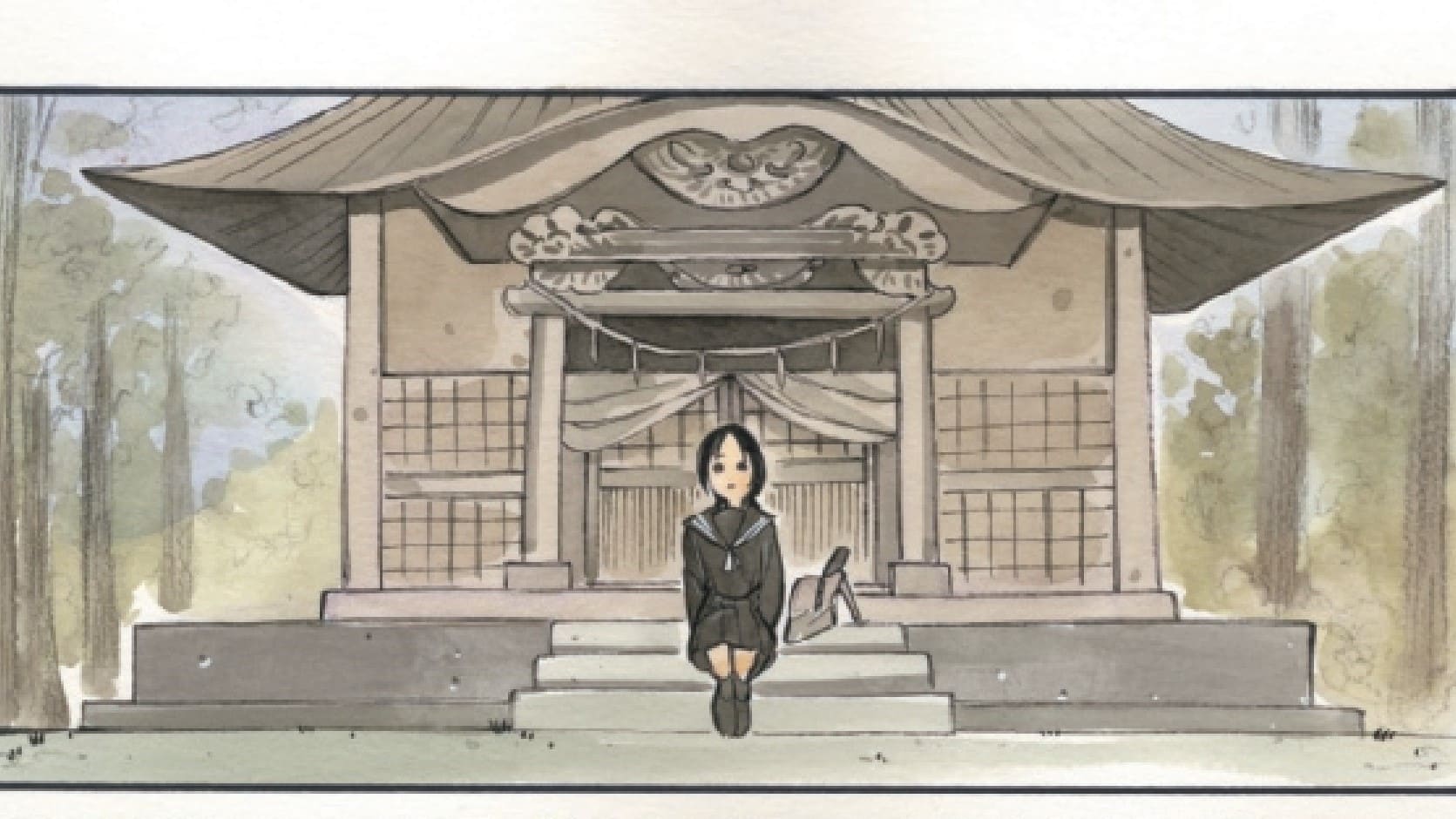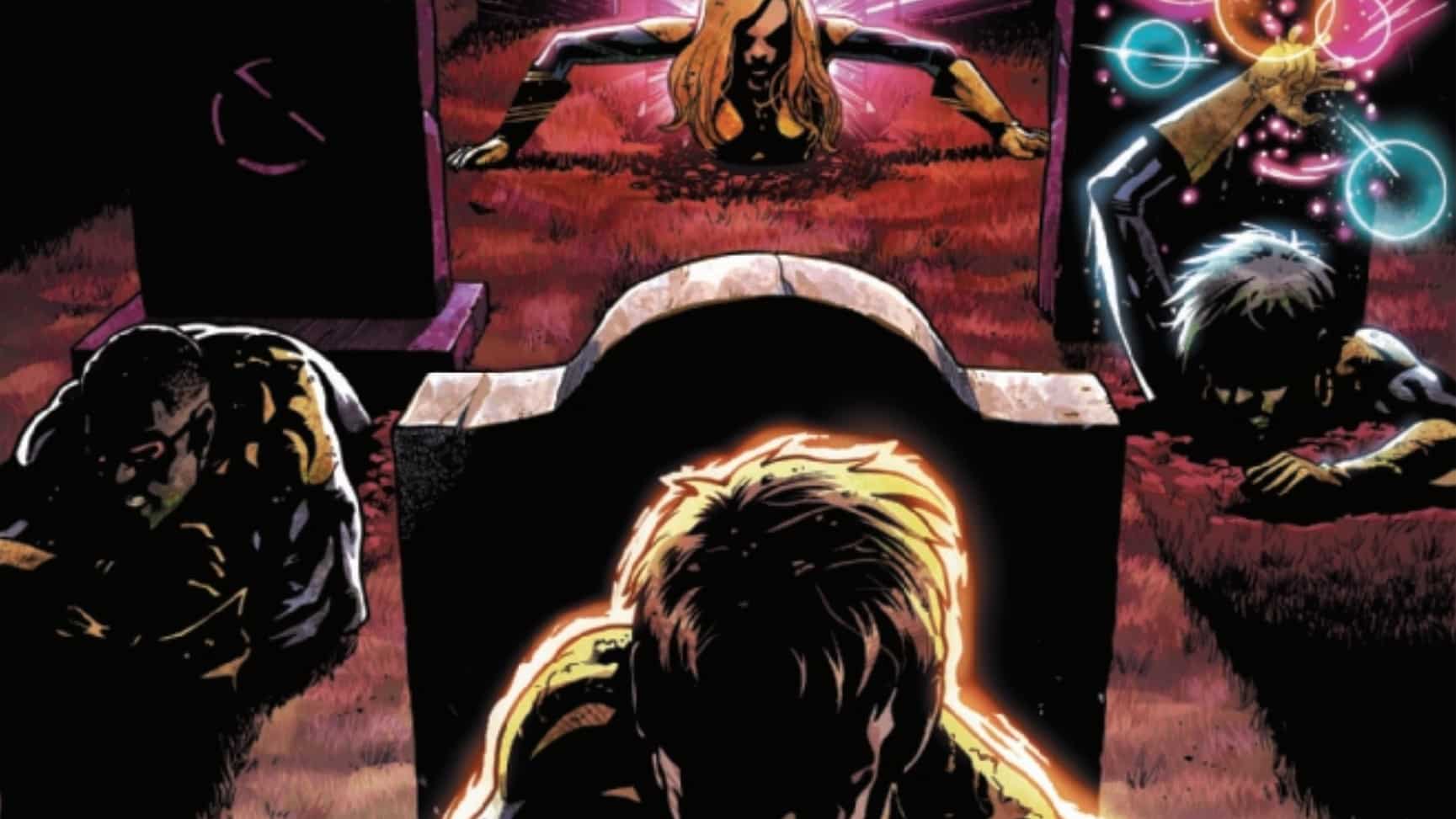With Leia in the hands of the Inquisitorius, Obi-Wan must get his groove back to storm a castle in Obi-Wan Kenobi Part IV!
Austin Gorton: After the intensity of last episode’s Obi-Wan/Vader showdown, some kind of letdown was inevitable. While this episode had plenty of fun moments, it also felt like the weakest entry in the series thus far, with a couple key components not quite working as well as they needed. Sean, I believe this is your first experience with the series; any high-level takeaways before we dive into the nitty-gritty?
Sean Dillon: Prior to watching this episode, I had only seen a few clips of the show. I saw the trailer and the fight scene between Vader and Obi-Wan from the previous episode, but that’s about it. It just didn’t seem to be my cup of tea. (I’m more of a Doctor Who person.) But I thought it might be a good idea to give the show a chance before writing it off completely and I had fun with Armaan talking about Moon Knight, so I thought why not. Sadly, my opinion didn’t shift.
Austin: Obviously, I’m a Star Wars person, so I’m predisposed to this stuff. But there’s definitely parts here that don’t really work (or at least, don’t work enough). Let’s get into it!
Bacta the Present

Austin: The episode begins where the previous one left off: with Obi-Wan pretty effed up in the wake of his fight with Vader, barely conscious as he’s ferried to some level of safety. He quickly gets dropped into a bacta tank, that miracle drug of Star Wars – the better to prevent having to slather Ewan McGregor with burn scar makeup (and avoid continuity issues). While I appreciate the brief moments in which the lines between Obi-Wan and Anakin blur as both get bacta-ed for their burns, Obi-Wan’s overall recovery here seems really fast. I’m sure Book of Boba Fett fans are happy this isn’t leading to a bunch of meandering flashbacks while Obi-Wan heals over a period of multiple episodes, but at the same time, it takes some of the sting out of last episode’s defeat to have him bounce back so quickly.
Sean: A problem I had with a lot of the episode is that it didn’t linger enough. It’s the shortest episode so far at little over a half hour, and you can feel how rushed everything is. There’s a need to get from one moment to the next to the next without a desire to sit with the events. This is a general problem I’ve had with the streaming model of television, exacerbated by Disney’s decision to release the episodes weekly rather than all at once.
Consider the core of the episode: Obi-Wan trying to save Leia. Television (even serialized) is full of fantastic episodes based around a single action. Be it the Walter White trying to kill a fly or E Corp dealing with a protest turned violent, the single action episode hones in on the specificity of the events. Be it through character motivation or action.
Here, however, there’s no focus. The tension is light with Obi-Wan being able to get past the guards (who seem to be lacking in number due to COVID restrictions) with ease. There’s no weight to the actions beyond one brief moment where two guards hear something before being distracted by a force trick.
Austin: I definitely agree that a big problem with this episode is that it’s not allowed to linger (though “heroes being able to make their way through Imperial strongholds with surprising ease” is more or less a staple of Star Wars TV at this point; Rebels did it a lot, and it drove me bonkers there, too). But I am intrigued by you laying the blame for that at the feet of the “one episode a week” model (I generally prefer that model, though for the largely personal reasons of being an Old, With Kids, which makes it harder for me to binge the “all at once” shows while keeping up with the conversation). I put the blame more on the length of the season/series. The events of this episode comprise 1/6 of the entire show, and the way it speeds through everything makes it feel like the series has more story than it feels like it can fit into those six episodes, so it whips past all these plot points in order to get to the next thing it has to do before it ends.
Yet like you said, I appreciate the (intended) episodic structure of this (it’s basically “the one where he rescues Leia from the Inquisitors”); I just wish it had been given more room to exist as that episode, and not something that had to be gotten through in favor of the next thing.
Sean: I should clarify that the problem isn’t the one episode a week model itself. I too prefer that model of storytelling over the all at once model. The problem lies in the fact that the show is designed for being all at once, but is being released once a week. If this was released with all six episodes at once, and watched all at once, the light feel of this episode could be ignored. You have a thirty minute sequence in a five and a half hour experience. It gets erased in the scope of it all.
But by being released as a stand alone episode of television, the seams reveal themselves. The weightlessness of it all becomes all the more apparent such that moments of character growth are dulled in their context.
Austin: Right, right. It’s the difference between “this is a six episode TV series” and “this is a movie, cut into six parts”. The latter is the model followed by far too many streaming shows, and while this series has, at times, avoided falling into that trap, this episode wasn’t one of those times.
Tell, Don’t Show

Austin: Another area where this episode felt like it took a step back was in the way it deployed Leia.
Sean: Something that could’ve helped the episode a lot is if they cut all the Leia sequences out. Putting aside that Vivien Lyra Blair is simply too young to be pulling off the righteous indignation of Carrie Fisher (such that her refusal to cooperate with the Empire comes off as petulance rather than defiance), her presence in the episode actually makes the events less tense.
There’s the old saying that it’s worse to not see something than to see it. Leia’s presence within the episode provides the audience a degree of safety. We know she’s alive, we know she’s not talking. She’s in danger, sure, but it’s (as you note) a trope in Star Wars at this point that the heroes have to save someone from a base. We know she’s going to be ok because we can see that she’s alive.
By contrast, imagine what the episode would’ve been like if we didn’t know what was happening with her. Imagine all the moments with Obi-Wan hoping he gets to her in time, not knowing something terrible is going to happen if he doesn’t. Sure, we’ll know on an intellectual level that she’s going to be just fine given she’ll call Harrison Ford a Nerf herder when she’s 18. But what we don’t know is… what if she talks?
What if she, a ten year old girl, is pushed to a point where she talks. Or even simply slips up at the wrong moment. We don’t know because the character don’t know. They’re just as nervous about the rescue plan succeeding as we are.
Austin: I have largely really enjoyed Vivien Lyra Blair’s performance in the series thus far. She does an uncanny job channeling some of the best parts of Carrie Fisher’s performance, while bringing her own little bits to this portrayal of Leia at a heretofore unseen time of her life. I guess maybe the creators felt like they didn’t want to sideline her for too much of one episode, but you’re absolutely right that less is often more.
Take, for example, the original Star Wars. This episode evokes it – purposefully – in many ways, from the broad – Old Ben infiltrating an Imperial stronghold to rescue Princess Leia – to small details – hey, there’s a mouse droid, like on the Death Star!. And like in A New Hope, this episode also features Leia being threatened and tortured (or nearly so, in this case). Yet pointedly, in the original, the door closes before the torture starts. No one asks Carrie Fisher to cry out in fear and panic, and the details are left to viewers’ imaginations.
Here, we get poor little Vivian Lyra Blair strapped into a too-large chair that is vaguely menacing, in a largely empty room, with no one to play against except Reva, who is standing dozens of feet away, and a couple Stormtroopers who, in these shots, may or may not be CGI constructs. Then she’s asked to project a complex mix of terror, defiance, and bargaining. It would be too much space (physically and emotionally) for even seasoned actors to fill, and as delightful as she’s been in this series, she (understandably) can’t pull it off. Far better to have left those events understated instead of overstated, as the original did.
Not surprisingly, then, the best Leia moment (for me) in this episode was one of the quietest ones, coming near the end of the episode. With Leia rescued and the heroes (seemingly) safely on their way home, she wordlessly reaches over and takes Obi-Wan’s hand. There’s the slightest little tremble to her hand as she does so, and it’s the perfect depiction of a character who’s largely held it together in the face of some extreme circumstances letting the fact that she’s still a small child a long way from home shine through.
Spy Games

Sean: And speaking of torture, let’s talk about Moses Ingram’s Reva. From what I’ve seen of the series, she’s the main antagonistic force hunting down our goodies. And, it must be said, Ingram is having a lot of fun with the role dancing between a put upon drone in a larger machine, a sympathetic ear of a fascist system, or bullshit detector. But, going back to the issue of serialization, there’s no sense of her beyond the archetype here. We get aspects of her general thing (backstabbing, betrayal, will do anything for power), but none of the finer details other episodes provided. The single event nature of the episode forces her into one mode.
Austin: It also doesn’t help that she’s largely sidelined from the rest of the Inquisitors in this one; part of the appeal of her character has been her iconoclasm, the way she succeeds by pushing against her peers and going outside the normal SOPs of the Empire. The nature of this episode thrusts her into a fairly standard Big Bad role, and the requirements of the plot (all else aside, we know Obi-Wan will be successful in rescuing Leia at some point) means that she either has to be occupied (and thus ignorant of what’s going on and separated from the other Inquisitors) or trapped by the weight of Imperial bureaucracy, so that the heroes can take advantage of that bureaucracy to escape.
As a result, her best moments in the episode were her interactions with Tala. Those interrogation scenes worked a lot better than her interrogations of Leia, and the way she seemed personally affronted by Tala being a traitor to the Empire was one of the few things in this episode that added to the complexity of her character. Being an Inquisitor suggests a certain level of Stockholm Syndrome at work (they are all former Jedi/Force sensitives broken to the will of the Empire), but the way Reva has consistently pushed the boundaries of her role in the interest of personal gain makes her apparent devotion to the Empire in the form of her snarling disdain for a traitor all the more interesting. Reva has always seemed in it for personal reasons, and not a diehard believer in the majesty of the Empire. Yet here, she seems enraged by the concept of Imperial defectors.
Sean: An interesting move they ultimately didn’t go for with Tala is a tension regarding how much of a traitor she is. There’s a point in the interrogation where Reva asks, point blank, if Tala is a spy, to which she nonchalantly says of course I’m a spy. How else am I supposed to get info out of the Rebels? The interesting implication for this moment would be a question of how genuine she’s being here. Is Tala being as mercenary with the Rebellion as Tala is with the Empire? Is this another stepping stone for some greater scheme?
The episode never plays with the implications of such a moment, opting to play it as blatant lies for the sake of a distraction. But it would be fitting of Star Wars’ love of devilish rogues who don’t fit within set parameters of genre while still, ultimately, aligning themselves with the heroes (Han Solo, Dr. Aphra, First Mate Piggy). Still, the interrogation as it is remains the highlight of the episode.
Austin: Another highlight, at least in terms of being creepy and quizzical, was Obi-Wan’s discovery of a prison/tomb/mausoleum in the basement of Fortress Inquisitorius, with a series of Jedi (young and old) encased like so many mosquitoes in amber. We’ve seen that the Inquisitors collect trophies before, but this takes that concept to a whole new level. It’s also not entirely clear WHY they’re collecting these Jedi, considering we saw them leave the first Jedi they were hunting in Part 1 hanging in the middle of town square. Whether this a hint towards some larger plot point, or merely a bit of color added to this episode, it provides a much needed hit of menace into a sequence which also features Obi-Wan smuggling Leia out of Evil Jedi Prison by [checks notes] stuffing her inside a trenchcoat.
Sean: And then there’s the finale where two characters we’ve barely met (within the context of the episode) come to save our heroes from certain doom, leading to one of them dying. It feels like we’re supposed to care about that, though the episode doesn’t do a lot with it. Which, at the end, is the core issue: There’s not a lot done with what’s here. We have brief moments of intrigue, but nothing more than that before we have to move on. It’s a mid season slump cut down to its barest essential pieces.
Force Facts
- It’s an obvious bit of symbolism, but I appreciated that Obi-Wan started doing more Jedi-ish things in the same episode that he was given more Jedi-ish clothes to wear.
- Reva refers to Obi-Wan as “Obi-Wan” to Leia, so unless she blocks out her memory of that experience entirely, she’s clearly aware that Ben Kenobi and Obi-Wan Kenobi are the same person by now (and thus, when she sticks that call for help in Artoo during A New Hope). This doesn’t really break canon or anything, but it’s one of those things some fans have been keeping an eye on.
- Another way this episode was a letdown – there was dodgy effects work in places, mostly involving ships: both Tala’s landing on Fortress Inquisitorius and the late-episode speeder rescue seemed particularly polygon-ish and not of a piece with the surrounding environment.
- Reva reveals to a delightfully-pissed off Vader that she let Obi-Wan go because she placed a tracker on/around him (not surprisingly, it turns out to be inside Leia’s droid Lola). Not only is this another callback to A New Hope, it implies Vader lifted the whole “let the Falcon escape so we can follow it back to the Rebel base” ruse from Reva.
- Armaan noted the glow of the lightsabers during the climax of the last episode, specifically the way they generate light (and might possibly blind their users…). That continues here, with shadows being cast on Obi-Wan’s face as he uses his lightsaber during the escape from Fortress Inquisitorius. The reason for the difference relative to how the light of the lightsabers used to be depicted is due to the fact that the series is using newer prop lightsabers, which actually emit light while being used during filming, versus the old way of doing it (in which actors used prop lightsabers with unlit rods standing in for the blade and the light effects were added in post-production).
Austin Gorton also reviews older issues of X-Men at the Real Gentlemen of Leisure website, co-hosts the A Very Special episode podcast, and likes Star Wars. He lives outside Minneapolis, where sometimes, it is not cold. Follow him @austingorton.bsky.social.

